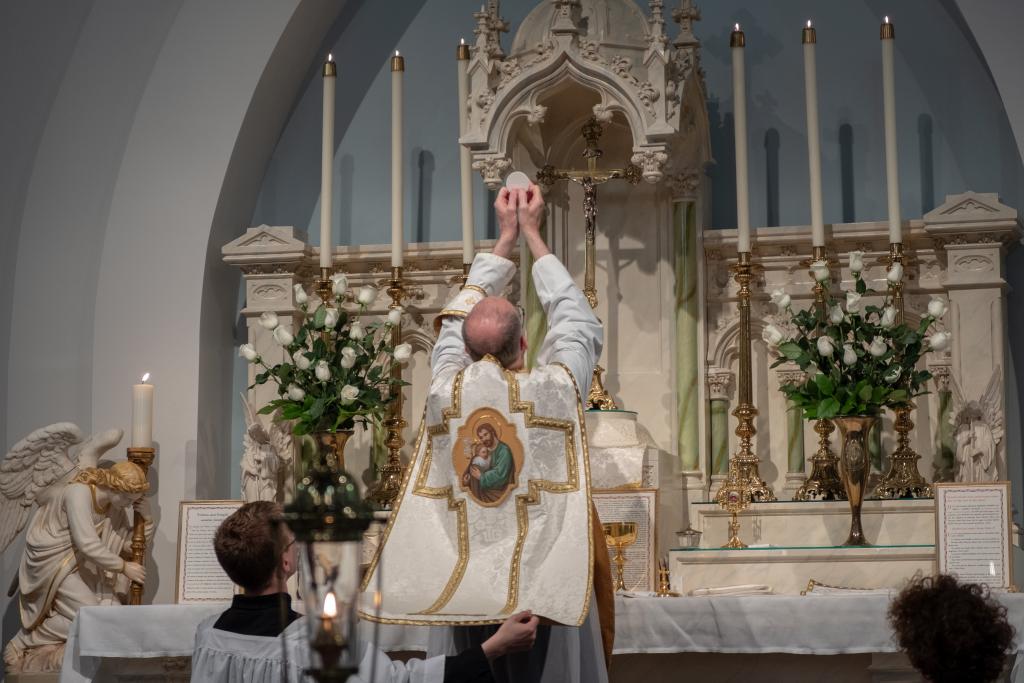
In Catholic elementary school, I was taught to use the capital He when referring to God. The capitalization, I was told, was a sign of respect. The use of the male pronoun was tradition. This basic system carried me through Catholic high school and into college. So imagine my surprise when, during my freshman year at a Catholic woman’s college, I turned in a theology paper only to receive it back covered in red pen marks. In large red letters at the top, the professor – a theologian – had written, “Do not capitalize pronouns for God!” She had circled every instance of He.
A little warning would have been nice.
Why Not Capitalize?
I was taught to capitalize God’s pronouns out of respect, but no real justification was given for doing so. It might be related to the Jewish scriptural tradition of leaving out vowels when writing God’s name (YHWH), but in reality there is no indication that early Christians were capitalizing pronouns. It’s something that happened later, can lead to messy grammar, and is far from universal. However, despite my theology teacher’s intense aversion to it, capitalization is far from the biggest pronoun issue facing God. The choice to capitalize or not has no real theological implications.
The question of gender, however, does.
The Real Problem with Pronouns
In the English language, gendered pronouns are tied to concepts of maleness and femaleness. (In some languages, such as Spanish, this is not the case. La mesa, uses a female pronoun, but it does not imply that the table is a lady.) There is a non-gendered English pronoun – it – but it implies an inanimate object. Referring to God as it feels grossly inaccurate. (The option of capitalizing It doesn’t feel much better.) But God, however, is not male or female. According to the Catechism of the Catholic Church:
He is neither man nor woman. God is pure spirit in which there is no place for the difference between the sexes. But the respective “perfections” of man and woman reflect something of the infinite perfection of God: those of a mother and those of a father and husband.
Even in saying that God is not a man, the Catechism uses male pronouns.
He or She?
Traditionally, the Church (capital C) has used male pronouns to refer to God. This is so common that some even think it’s heretical, or at least “far left,” to consider female pronouns for God. But this is simply not the case. 14th century mystic Julian of Norwich is famed for her reflections on God as Mother. If that’s not authority enough, St. Anselm – a doctor of the Church – and St John Chrysostom both referred to Jesus as our mother. (This is a stretch for me personally. Say what you will about the Creator, Jesus was a man.) However, in recent times God has been He, and any attempt to state otherwise is considered radical.
There are a multitude of problems with referring to God exclusively as male. There is no doubt in my mind that the association of God with maleness has contributed to the patriarchy in the Church. The intense reaction some commentators have to even considering more inclusive language is an indication that someone is benefiting from this arrangement. But, above all, it’s bad theology.
A better option would be to switch back and forth between male and female pronouns, but this can be confusing. Besides, She is no more accurate descriptor for God than He. Another option is to not use pronouns at all, but this can have disastrous results. Believe me. I’ve tried, and it’s not pretty. So what can be done?
A Modest Proposal: They
The singular they is already used regularly in colloquial language to refer to someone whose gender is unknown. While some may consider this bad grammar, the singular they has been around for centuries. Even William Shakespeare used it. Today, the singular they is popular in the transgender community, which is probably why there is such strong aversion to its use in reference to God. Anything that appears to challenge gender norms is problematic for conservative Catholics. But I’m not arguing here that God is gender nonconforming, at least not in the human sense. Instead, I’m arguing two things:
- God is beyond gender
- God is three-in-one
The most exciting aspect about the singular they is its ability to adequately describe the Trinity. Even if we accept He in reference to God the Father, we’re only accounting for one aspect of God. But God is manifold. The singular they is a perfect descriptor for a being that is neither male nor female but both singular and plural.
Now the only question is whether to use they or They.










